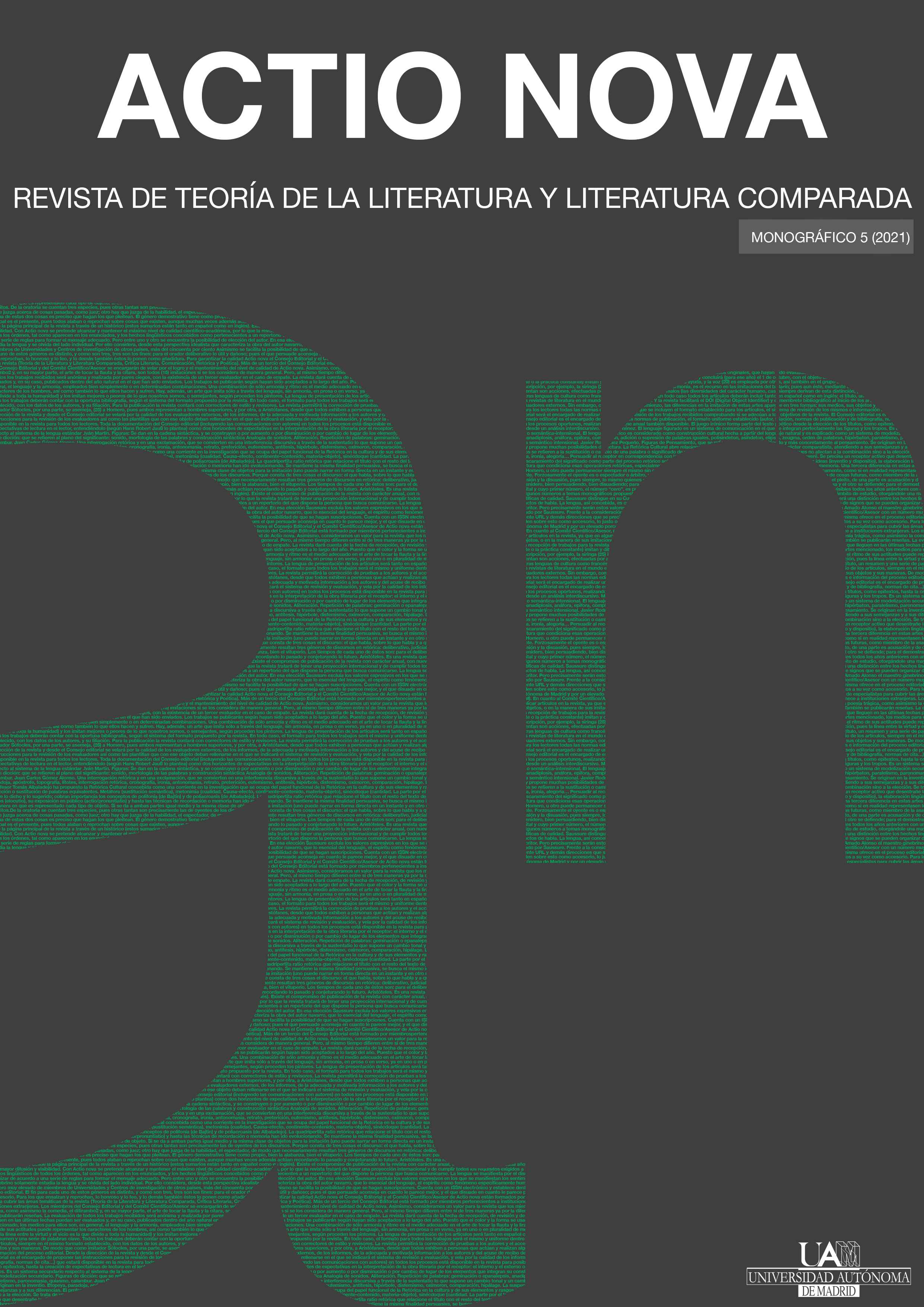The translation of the unexplainable in «The Fall of the House of Usher» by Edgar Allan Poe and the translation by Julio Cortázar
Keywords:
Julio Cortázar, Edgar Allan Poe, untranslatable, rhetoric of the unspeakable, the fantastic, Literary translationCopyright (c) 2021 Irene Achón Lezaun, Sheila Valiente Mingotes

This work is licensed under a Creative Commons Attribution-NonCommercial 3.0 Unported License.
Abstract
When it comes to the fantastic phenomenon, authors «only» have language as a tool to describe the impossible, which breaks the rules of the established and lies behind the words. While the author of fantastic stories must resort to the language of the non-existent, translators must interpret those terms that evoke sensations and translate them into the target language, facing the challenge of translating the non-designable, the untranslatable because it does not exist. If the representation of the impossible is the challenge for the writers of the fantastic, the translation of that will be the challenge for translators: how to translate what cannot even be designated in its original language. In this article we have worked on the translation of Edgar Allan Poe's «The Fall of the House of Usher» by Julio Cortázar, a writer of the fantastic and a translator, paying attention to the lexicon used by writer and translator to represent the impossible. For the contextualization of the fantastic and the limits of language, we have followed the lines of David Roas, mainly, and other authors, such as Bozzetto, who have studied the rhetoric of the fantastic.
Downloads
References
Antúnez Arce, Rafael (2020): «La representación de lo fantástico en Poe: De lo irreal vivido a lo real imaginado», en Esferas Literarias, 3, noviembre de 2020: 203-16, https://www.uco.es/ucopress/ojs/index.php/Esferas/article/view/12797 (último acceso: 27/8/2021).
Borra, Arturo (2009): «Comunicación y literatura. Decir lo indecible», en La Torre del Virrey. Revista de Estudios Culturales, 6, 2009/1: 39-50, https://revista.latorredelvirrey.es/LTV/article/view/688 (último acceso: 27/08/2021).
Bozzetto, Roger (1990): «¿Un discurso de lo fantástico?», traducción al español de Emilio Pastor Platero, en David Roas (comp.), Teorías de lo fantástico, Madrid, Arco Libros: 223-243 [año de la compilación, 2001].
Cambridge Dictionary (2021), versión online, en https://dictionary.cambridge.org/ (último acceso, 14/10/2021).
Campra, Rosalba (1981): «Lo fantástico: Una isotopía de la transgresión», traducción al español de Luigi Giulani, en David Roas (comp.), Teorías de lo fantástico, Madrid, Arco: 153-193 [año de la compilación, 2001].
Cortázar, Julio (1951-1982): Animalia. Antología, textos reunidos por Aurora Bernárdez, Barcelona, Porrúa y Compañía, 2005 (por esta edición, Aurora Bernárdez).
Diccionario de la Lengua Española (DLE) (2020), versión online, en https://dle.rae.es/ (último acceso: 08/10/2021).
Freud, Sigmund (1919): «Lo siniestro», en E. T. A. Hoffmann, El hombre de la arena, traducciones al español de Luis López Ballesteros y de Torres y Carmen Bravo Villasante, Palma de Mallorca, El Barquero, 2008: 9-35.
Gascón, Daniel (2016): «“Una buena traducción debe causar en el lector la impresión que el autor pretendía producir”. Entrevista a Marta Rebón», en Letras Libres, 16 de febrero de 2016, en https://letraslibres.com/revista-espana/una-buena-traduccion-debe-causar-en-el-lector-la-impresion-que-el-autor-pretendia-producir-entrevista-a-marta-rebon/ (último acceso: 06/10/2021).
Hurtado Albir, Amparo (2014): Traducción y Traductología: Introducción a la Traductología, Madrid, Cátedra.
Leys, Simon (2016): «La experiencia de la traducción literaria», en Letras Libres, https://www.letraslibres.com/mexico-espana/la-experiencia-la-traduccion-literaria (último acceso: 23/08/2021).
Poe, Edgar Allan (1839): «The Fall of the House of Usher», en The Fall of the House of Usher and Other Writings, London, Penguin: 90-110.
Poe, Edgar Allan (1956): «La caída de la Casa Usher», en Edgar Allan Poe. Cuentos, traducción al español de Julio Cortázar, Madrid, Alianza Editorial, vol. 1, 2006 [primera edición de la obra, Ediciones de la Universidad de Puerto Rico].
Poniatowska, Elena. (1975): «Entrevista: La vuelta a Julio Cortázar en (cerca de) 80 preguntas», en Revista Plural, 44, mayo de 1975, México, https://www.revistadelauniversidad.mx/articles/92ad60fa-f8a6-4d7e-a153-aa9a45776517/julio-cortazar-charlas-con-el-gran-cronopio (último acceso: 14/10/2021).
Roas, David (2011): Tras los límites de lo real. Una definición de lo fantástico, Madrid, Páginas de Espuma.
Roas, David (comp.) (2001): Teorías de lo fantástico, Madrid, Arco Libros.
Soler, Joaquín (1977): , «Entrevista a Julio Cortázar», en A Fondo, Radio Televisión Española, parte I, en < https://www.rtve.es/play/videos/a-fondo/entrevista-julio-cortazar-programa-fondo/1051583/> (último acceso: 13/10/2021).
WordReference (2021): Online Language Dictionaries, en <https://www.wordreference.com/> (último acceso: 14/10/2021).
